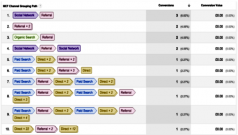Google has announced the rollout of what's being widely termed "passage based indexing" - but would better be called "passage based ranking" - because nothing has changed in Google's indexing process.
What has changed is: through improved natural-language processing (BERT is now used on nearly all queries, up from fewer than 10% a year ago) Google better understands search queries.
BERT's #1 skill is the ability to understand a user's intent based on the wording of a query.
Now, through yet further improved natural-language processing, Google is able to understand website content well enough to match "passages" - sections of web pages - to queries.
One implication of this for SEO is: it's going to be less necessary to have a separate page for each major keyword and closely related content. Because Google will be able to identify in its index of pages passages that match the information being sought in the query, and rank higher the pages in which those passages appear, without particular regard to the rest of the content of the page.
Furthermore, we now can start with a hypothetical query, create a passage that answers it, and work that passage into the content of a page that also covers other material.
We just need to figure out what queries people are going to use - the specific language - to find our stuff, then create very relevant passages that provide the answer being sought. And work these passages smoothly into pages.
However: Having indexed and identified a passage that best answers a specific question being asked in a query, Google has the ability simply to serve the passage directly to the user - the "zero click" option - bypassing the page and website altogether.
That's a significant threat: as early as June 2019, fewer than 50% of Google searches resulted in clickthroughs to a website:
What to do?
- Forget about keyword density.
- Use Google's "People Also Ask" and similar tools.
- Identify specific questions that your best prospects will ask when looking for a product/service like yours.
- Create passages that answer these questions.
- Identify - or create new - the best pages on your website to host these passages, and work them in in human-friendly ways.
- Watch query trends in Search Console.
- Watch impressions as well as clickthroughs in Google Analytics.

 - David
- David







Comments on Google passage based ranking makes SEO easier - and harder